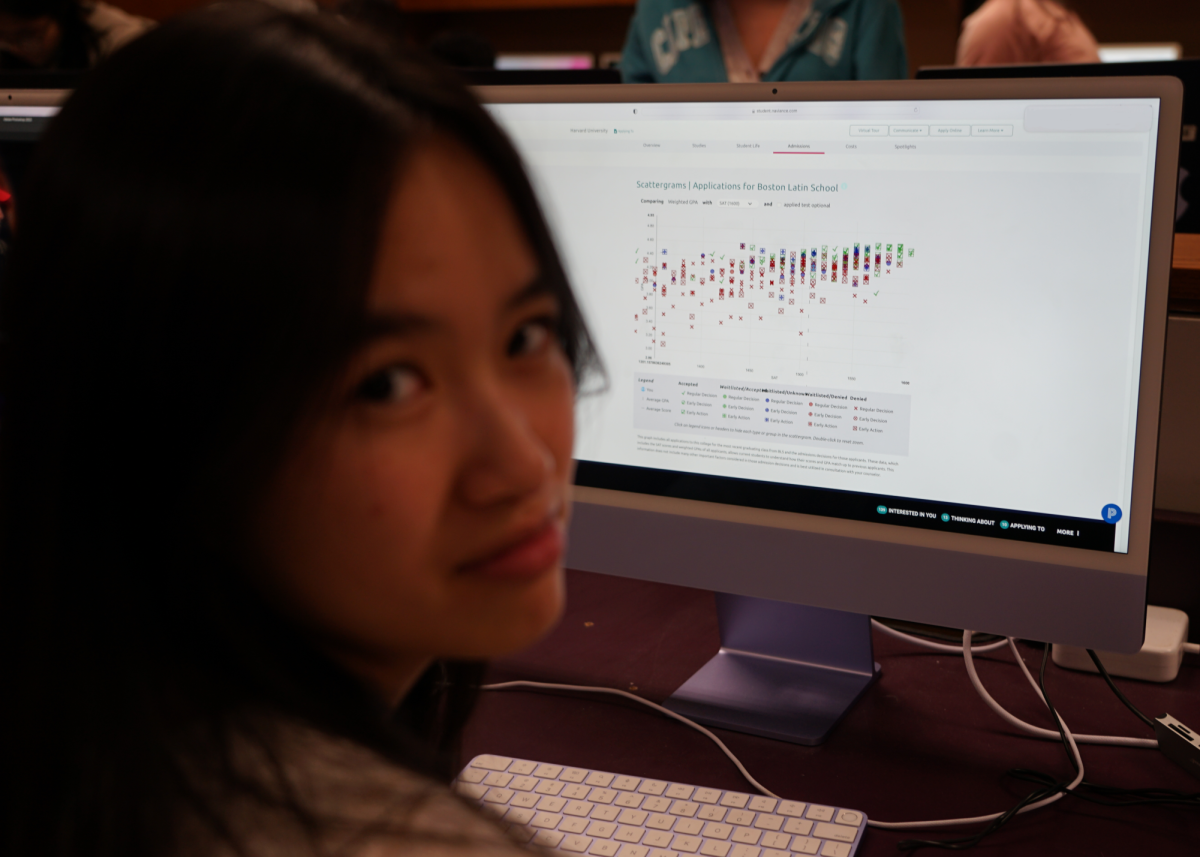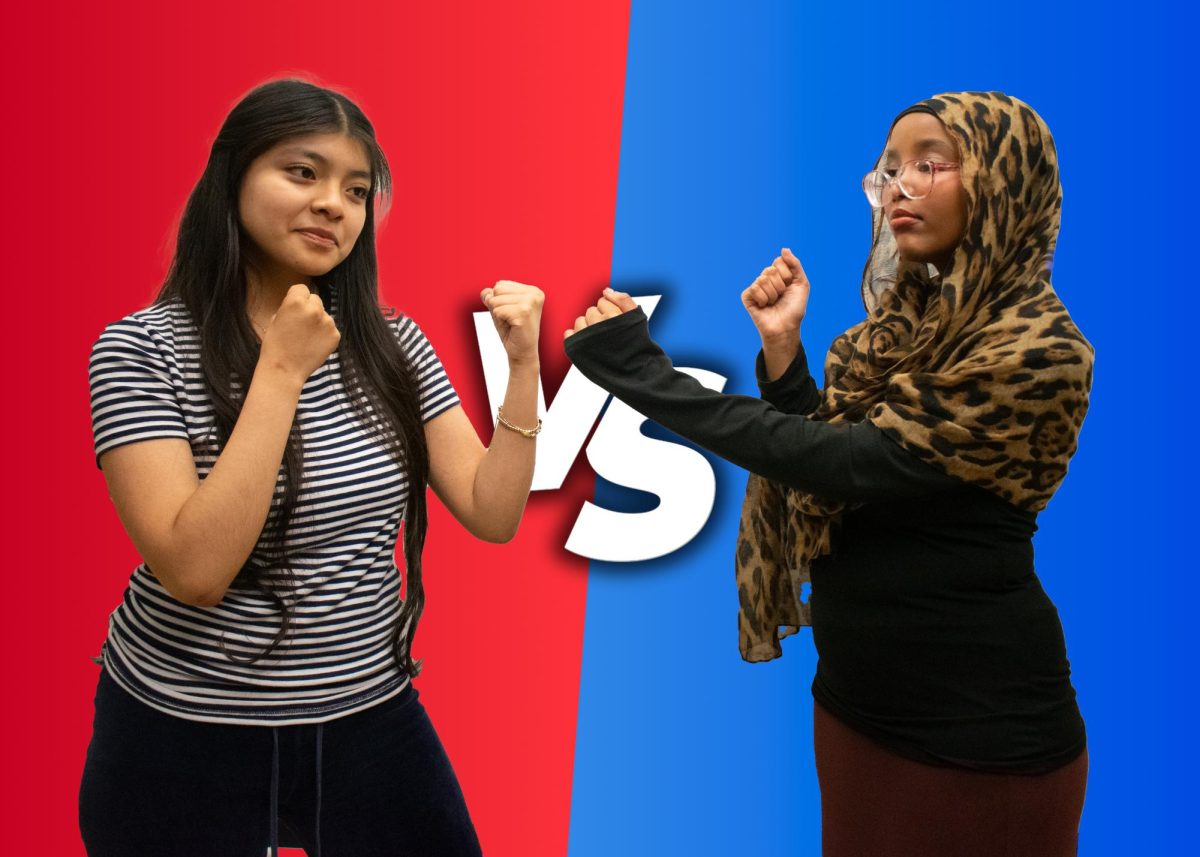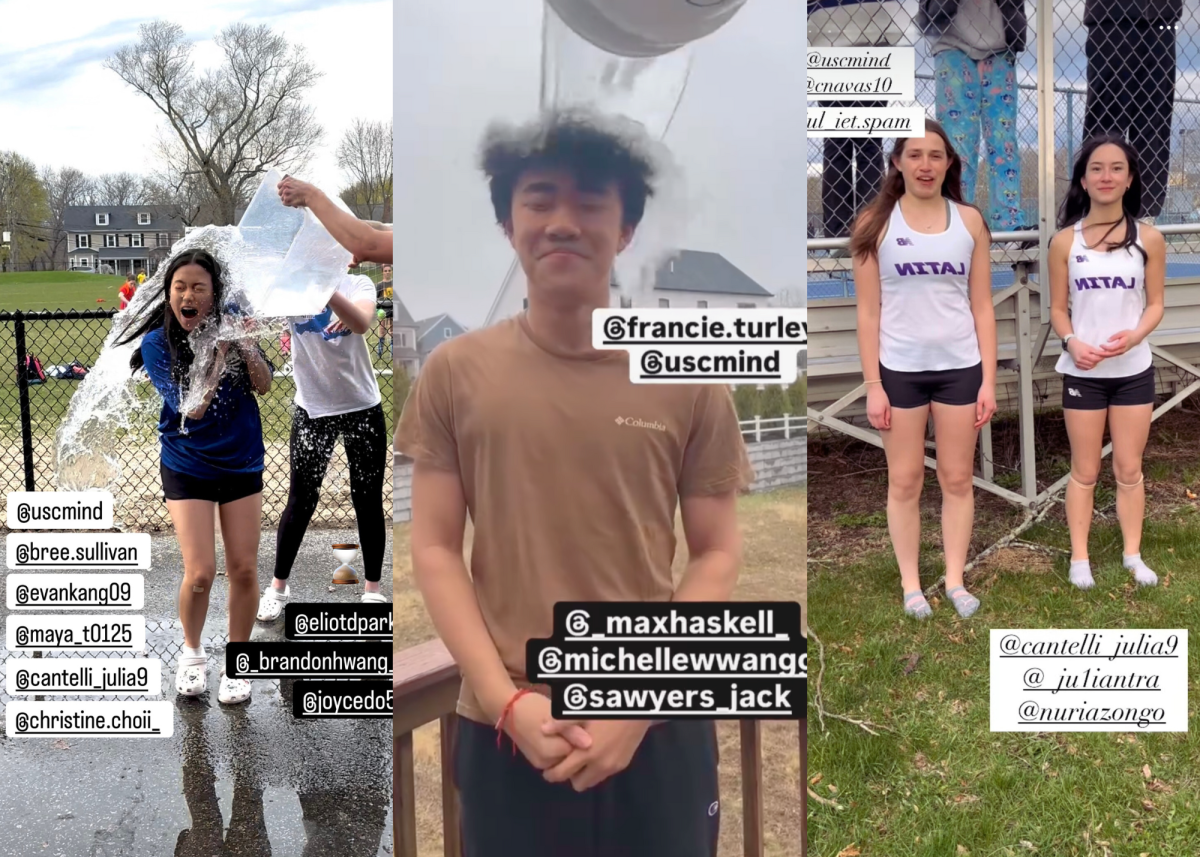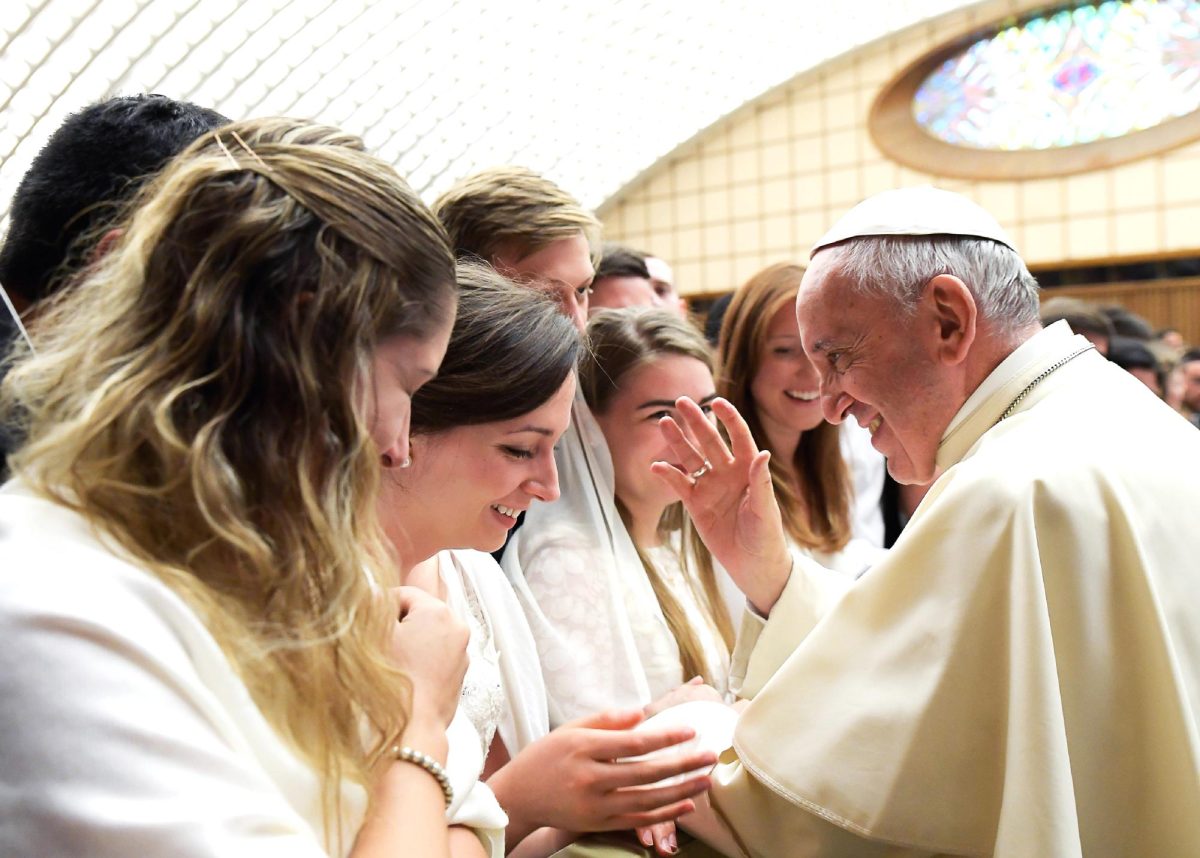The first half of senior year is an exciting time. Fall senior athletes play their last games, musicians have their final holiday concerts and everyone enjoys the pre-Thanksgiving pep rallies. Present in all of these is the spirit of collaboration, which allows us to push each other to new heights. On the flip side, seniors are also applying to colleges during this time. The tension and competition at Boston Latin School is exacerbated by college applications, threatening the camaraderie and friendships that students would otherwise benefit from during this time.
During college application season, people start to view each other as rivals, competing for college spots, and because of this mindset, they engage in unhealthy behaviors toward each other. Nabil Madaoui (I) remarks,“[College admissions] turn people very hostile. […] Last year, the competition got so bad to the point where some kids were demanding other kids’ GPAs just to find out why they didn’t get accepted into a college.”
This competition progressively worsens from lower grades. When we enter BLS as sixies, there tends to be a spirit of collaboration between students because of universal apprehension stemming from being new to the school. As students progress to higher grade levels, however, the pride of attending a prestigious school and the ego boost of receiving good grades begin to fade away.
Students also tend to start feeling like everyone around them is more knowledgeable. Even for students who are not as worried about grades, if their friends are very stressed, many will adopt an outwardly anxious attitude in order to fit in with them.
Amelie Kassabian (III) describes this phenomenon, saying, “My two best friends are very scholarly, and one of them has parents who are very harsh with grades, and I have to be like ‘Oh yeah, my parents are too. Oh yeah, I’m really worried about my grades’ even though they have all A’s, and I have A’s and B’s.” Similarly, when peers lament about how little sleep they got or how often they’re double-booked, they romanticize being a workaholic or always struggling. This is a big reason why the toxic, competitive mindset proliferates.
Madaoui elaborates, “Competition in the short term can be good. Like competition, whether or not you’re going to get a high score on a test, that’s fine. But competition where it’s four years of basically your life’s work is stressful because if you end up, I guess, ‘losing’ to the other person, you’re going to be crushed.”
We should not strive to do better than each other, but instead learn to acknowledge that our individual achievements are still accomplishments worth celebrating. Everyone understands that BLS is a school known for its rigor and high-achieving students. Thus, the pressure of meeting such expectations from parents, schools, peers and even themselves can isolate and stress students instead of celebrating their achievements.
Many begin prioritizing grades over mental health. They focus on due dates rather than developing a comprehensive understanding or a connection to the topic being taught. Since the focus of all education, including college, is to develop a love of learning, we should ensure the two work symbiotically rather than inhibit each other.
BLS Computer Science teacher Mr. Michael Brown states, “I’ve […] seen students who, because they took a step back from their grades, because they had some distance from [them], were able to explore the topics taught much more freely.”
Maintaining this supportive culture starts with the individual. It is important to surround ourselves with people who create a safe environment. In a large, prestigious school, it is inevitable that there will be people who hold this toxic mindset. It is crucial to find the people who support you, give honest criticism of your work and do not judge you for your mistakes. To reduce the amount we compare ourselves to others, all of us need to learn that our value is not placed in our achievements. One way to do this is by taking one day each week to focus on things that are not tied to scores or performances to remind us to focus on our values and our relationships. Then, for the other six days one can focus on college admissions and other academic endeavors, without the stress that they are their whole identity.
Teachers also play a role in mitigating the rivalry among students and keeping the focus on learning. They can tell stories about their own trajectories to show that no one had it all figured out by college, thus providing important context and reassurance to students during these processes.
Finally, society as a whole can take steps to eliminate toxic competition around the college season. Social media contributes to competition by providing unlimited access to other high schoolers’ test scores, extracurriculars and admissions videos. There also needs to be a nationwide reduction in grade inflation. According to U.S. News, the average GPA has risen from 3.17 in 2010 to 3.36 in 2021, even though National Assessment of Educational Progress scores have dropped over that period. Grade inflation makes getting a “C” seem like failure rather than average, promoting the idea that success warrants perfection.
Some will argue that the cutthroat environment at BLS is beneficial because it creates competitive and driven students who are ready to compete for jobs and leadership positions in the real world. This mindset, however, only leads to isolation, depression, cheating and failure. Students will grow up to be paranoid adults who constantly compare themselves to others around them. Creating an environment of open collaboration will make us more productive and ready for college and life after school.
Categories:
Cutthroat Competition for What?
By Mark Snekvik (II) & Fathia Shodeyi (IV), Contributing Writers
January 23, 2024
0








